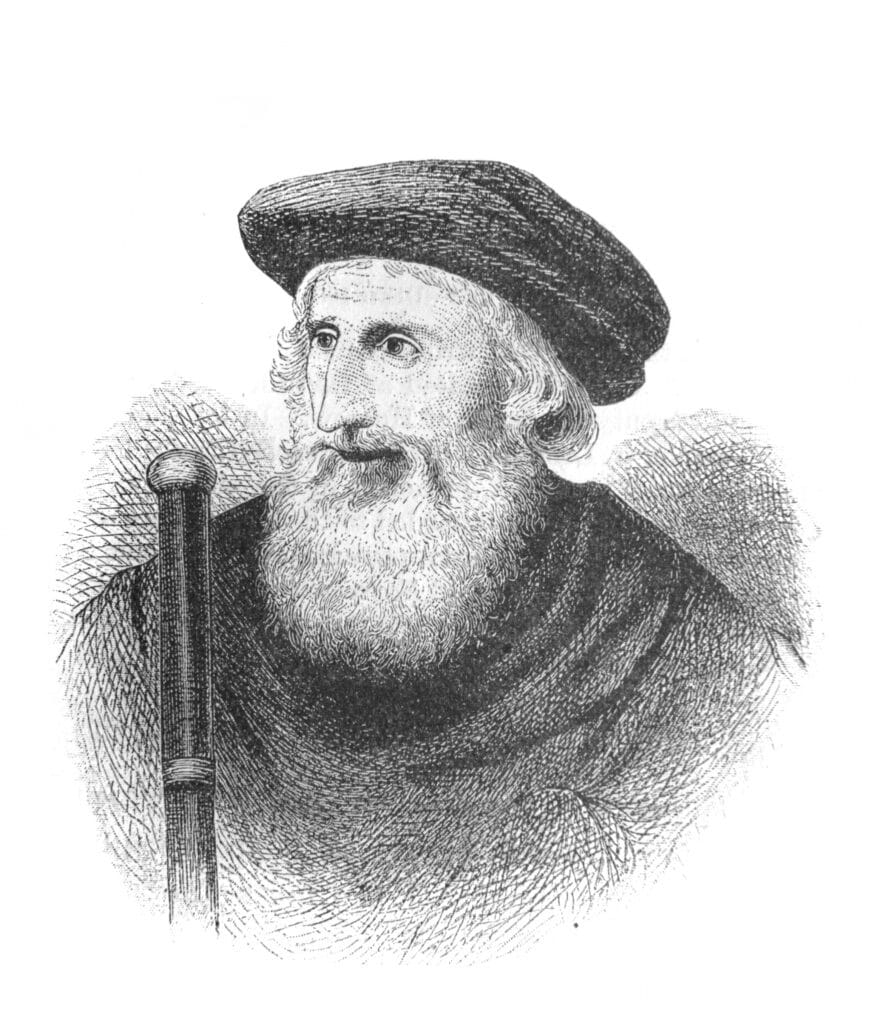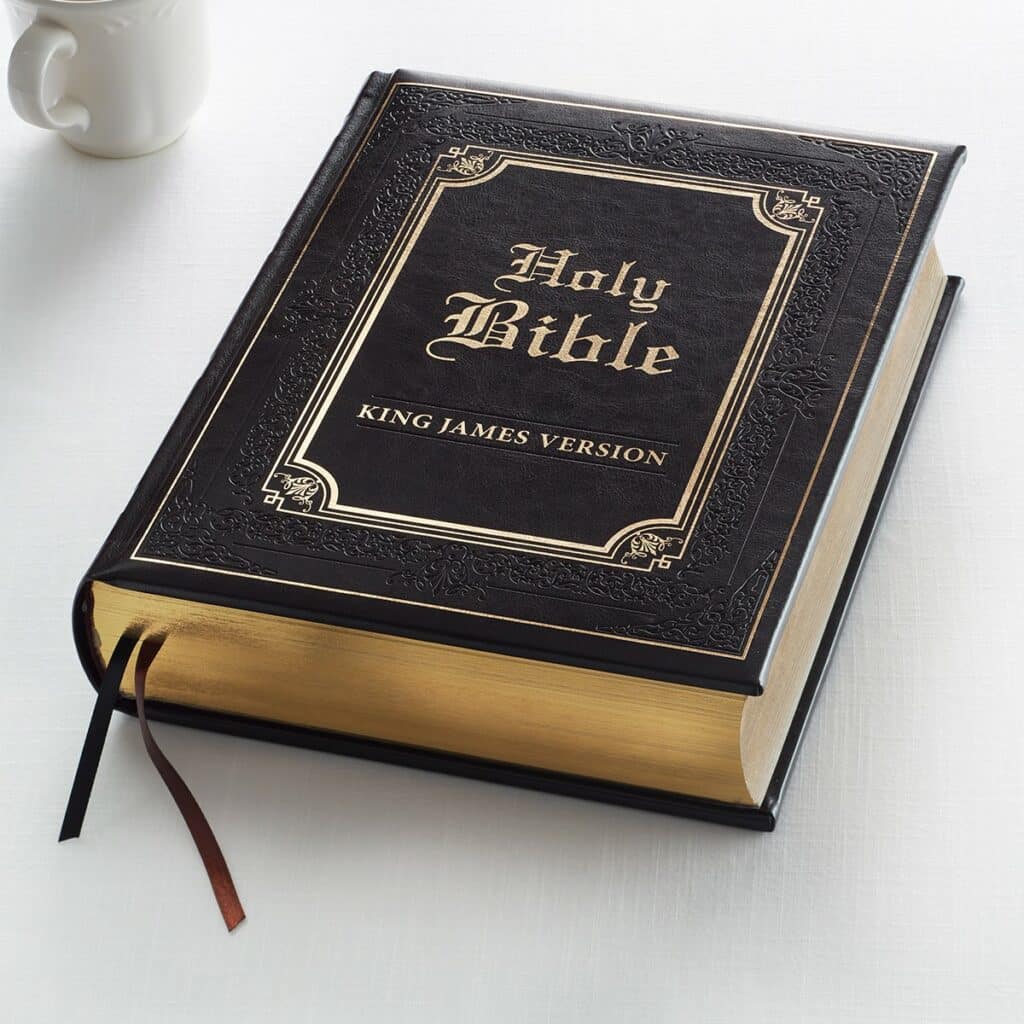Did you know that most of the complaints against the Medieval Roman Catholic Church during the early days of the Protestant Reformation came from within the church itself? Martin Luther, for example, was a Catholic monk and priest. Erasmus of Rotterdam was a Catholic scholar and university professor. Both are considered fathers of the Protestant Reformation, albeit for different reasons.
A century and a half, however, before Luther nailed his 95 Theses on the Wittenberg Church door, sparking the Protestant Reformation, a Catholic theologian and professor in Oxford voiced his dissent against several tenets of Catholicism. In fact, he is nicknamed the “morning star of the Reformation, “ as his protests laid the groundwork for future reformers in Britain and Europe.
Early Years
John Wycliffe was born in Yorkshire, a north-central county in England. Little is known about his childhood, but as he came from a landowning family—his father was the squire of a small manor—he must have had some means. That he received his education at Oxford University confirms this. His wide-ranging education over many years resulted in leadership positions at Oxford and various parishes.
Wycliffe was a teenager when the Black Death reached the British Isles in 1348. Some scholars surmise that this gave him a bleak outlook on the future of humanity, as Wycliffe referred back to it often in his writings, viewing the plague as God’s judgment on a corrupt church leadership.

14th Century Abuses
Despite being best known today for his English Bible translation, that fame came later in his life. In his early and middle years, Wycliffe was much more interested in politics and better known as a scholastic philosopher. Specifically, he stood with English political leaders against the foreign meddling of Rome and the Pope. Wycliffe also believed that as all authority is God-given, leaders must be virtuous. Like Erasmus who would later criticize the clergy of his day, Wycliffe chastised the clergy of the Catholic Church who lived in luxury, their opulence in stark contrast to the life of the typical parishioner.
Corruption Through the 15th Century
Each of the seven popes from the early decades of the 15th century to Martin Luther’s excommunication, engaged in one or more of the following abuses: the buying and selling of church offices to family and political allies; creating empty church offices and filling them with the highest bidder; taking concubines on the side and even bearing children with them while maintaining a vow to celibacy; bankrupting the church through massive building projects and opulent living; and funding these endeavors by selling letters of indulgences which promised purchasers years off their time in Purgatory.
A Bible Everyone Could Read
Given such corruption, Wycliffe believed that the best way for believers to inoculate themselves from the false teaching and questionable practices of the church was to have the Bible in a language everyone could easily understand. In his day, the Latin Vulgate was the Bible authorized by the Roman Catholic Church, but common folks didn’t know Latin. Portions of the Bible had indeed been translated into Old English in earlier centuries, like the 8th-century Lindisfarne Gospels and the 12th-century Wessex Gospels, but nobody had produced a complete English Bible translation.
Driven by the conviction that everybody should have a copy of the Bible in a language they could understand, Wycliffe produced the first translation of the complete Bible into Middle English (the language of Chaucer) in 1382.
Though considered Oxford’s most celebrated philosopher and lecturer, Wycliffe’s political views ran afoul of Pope Gregory XI who issued five papal letters against him in 1377, calling for his arrest. Wycliffe’s popularity, though, shielded him from the Pope’s threats. Emboldened, Wycliffe began to attack the Catholic Church with greater severity. In his crosshairs was the Catholic doctrine of transubstantiation, the belief that the bread and wine of communion transform into the actual flesh and blood of Jesus. On this point Wycliffe lost a fair amount of his supporters in church and government, and he was exiled to a small town.

Scripture Tells A Different Story
Wycliffe’s growing Protestant views included an appeal to the authority of Scripture over that of the church’s teaching and traditions, the validity of lay preachers as long as they preached the gospel in its purity, and an emphasis on faith in Christ as the effective means of salvation versus sacramental works. His notion that an “invisible church” of the truly saved exists, as opposed to the “visible church” which involves its earthly structures, ran contrary to Roman Catholic thinking that taught the visible Catholic church and the saved were one and the same. Wycliffe also vigorously attacked monasticism as he viewed it as an irredeemably corrupt institution only interested in its own power.
Perhaps the most Protestant thing about Wycliffe, and the achievement for which he is most remembered, is that he wanted to get the Bible into the hands of as many people as possible. The Catholic Church subsequently created the “Wycliffe Rule” whereby anyone caught translating the Bible into a vernacular language was subject to death.
In December, 1384, Wycliffe suffered his second stroke in two years. He died on New Year’s Eve. Having made many enemies in the church during his time, Wycliffe was declared a heretic in 1415 by the Council of Constance and his writings were burned. His body was exhumed a decade later and burned at the stake. Increasing persecution of his followers, known as the Lollards, forced most of them underground in the coming decades.
Wycliffe's Legacy
In Wycliffe’s day, before the printing press, hand copying the Bible took an incredible amount of time and few could afford to own one. Instead, people would come to a public square to hear a new translation read aloud. In this way, Wycliffe’s work was mainly disseminated via Lollard lay preachers, although handwritten copies were also created. Such public meetings came with obvious danger, and often groups would meet in secret to hear God’s Word in English.
Over a century after Wycliffe’s death, an English Bible translation by another Englishman, William Tyndale, benefited from the momentum created by Wycliffe’s 14th-century work. However, Tyndale translated his Bible directly from the Hebrew and Greek Old and New Testaments, whereas Wycliffe worked from the Latin Vulgate. Wycliffe’s desire to have a Bible in the vernacular was an ideal that eventually yielded versions authorized by the British Crown, the most famous being the King James Version in 1611. While Tyndale is often called the father of the English Bible, Wycliffe was certainly its pioneer.
Influencing His Contemporaries
Wycliffe’s teaching influenced Jan Hus in Bohemia (modern-day Czech Republic), who was condemned by the same council that condemned Wycliffe. Hus was burned at the stake in 1415 as increasing persecution of those who opposed the Catholic Church continued into the Reformation. A century later, a little-known German monk, Martin Luther, would be labeled the new Hus.
From his calls for reforming church leadership and spurning corrupt Catholic doctrines, to his Bible translation that laid the groundwork for later English versions, John Wycliffe is rightly considered the morning star of the Reformation.

